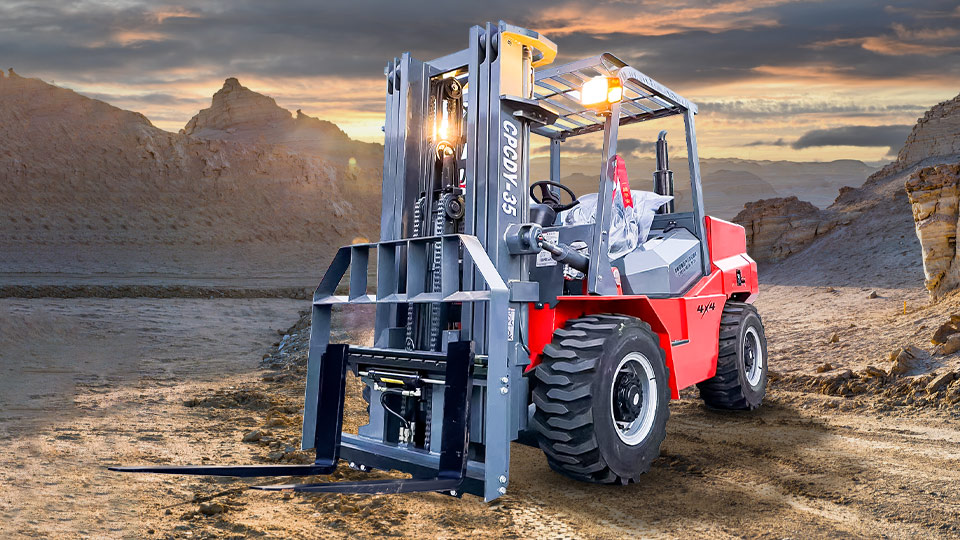In the EU market, an agricultural handling off-road forklift without CE or TÜV certification is like lacking an "admission ticket" — port customs clearance is blocked, customers refuse to accept goods, or even face heavy fines. However, for domestic manufacturers, there are far more "environmental pitfalls" on the certification path than imagined. Today, we will break down the 3 major minefields that Agricultural Handling Forklift must avoid when exported to France/Germany, helping you save hundreds of thousands of yuan in rectification costs.
Euro V diesel engine: Failure to meet emission standards leads to "one-vote veto"
In the EU's environmental requirements for Agricultural Handling Forklift, engine emissions are the core threshold. France/Germany mandatorily require compliance with Euro V standards (nitrogen oxides ≤ 0.4g/kWh, particulate matter ≤ 0.02g/kWh), which are more than 30% stricter than China's National V standards. A Zhejiang manufacturer was directly rejected by the German TÜV certification agency because its engine's particulate matter emission exceeded 0.005g/kWh, taking 2 months for rectification and losing over 150,000 yuan.
Low-noise design: 75 decibels is the "invisible red line"
The EU stipulates that the noise of Agricultural Handling Forklift during operation (1 meter from the equipment) must not exceed 75 decibels — equivalent to the volume of normal conversation. This requires threefold optimization: engine noise reduction, hydraulic system shock absorption, and tire noise reduction. A Polish dealer reported that an Agricultural Handling Forklift without noise reduction treatment was collectively rejected by local farmers due to excessive noise, and eventually had to be resold at a low price.
Fork welding without flaw detection: Minor negligence ruins the entire equipment
Forks are the "load-bearing backbone" of Agricultural Handling Forklift, and their welding quality must pass X-ray or ultrasonic flaw detection (EN 10228 standard). A Shandong manufacturer omitted the flaw detection step, and tiny cracks were found in the fork welds during certification. Not only did the certification fail, but it was also required to replace all forks, adding an additional cost of 80,000 yuan.
Why do these details determine certification success?
France/Germany's environmental regulations are known for their "strictness", and any slight deviation may trigger certification rejection. Hengwang's HWC-35A Agricultural Handling Forklift exported to Europe passed both CE and TÜV certifications at one go through Euro V engine calibration, full-body sound insulation cotton upgrade, and 100% fork flaw detection, becoming the "compliant first choice" of local farmers.
Want to avoid these pitfalls? Get a customized guide now!
Fill in your name + email + phone number immediately to receive Export Certification Guide for Agricultural Handling Forklift for free!

